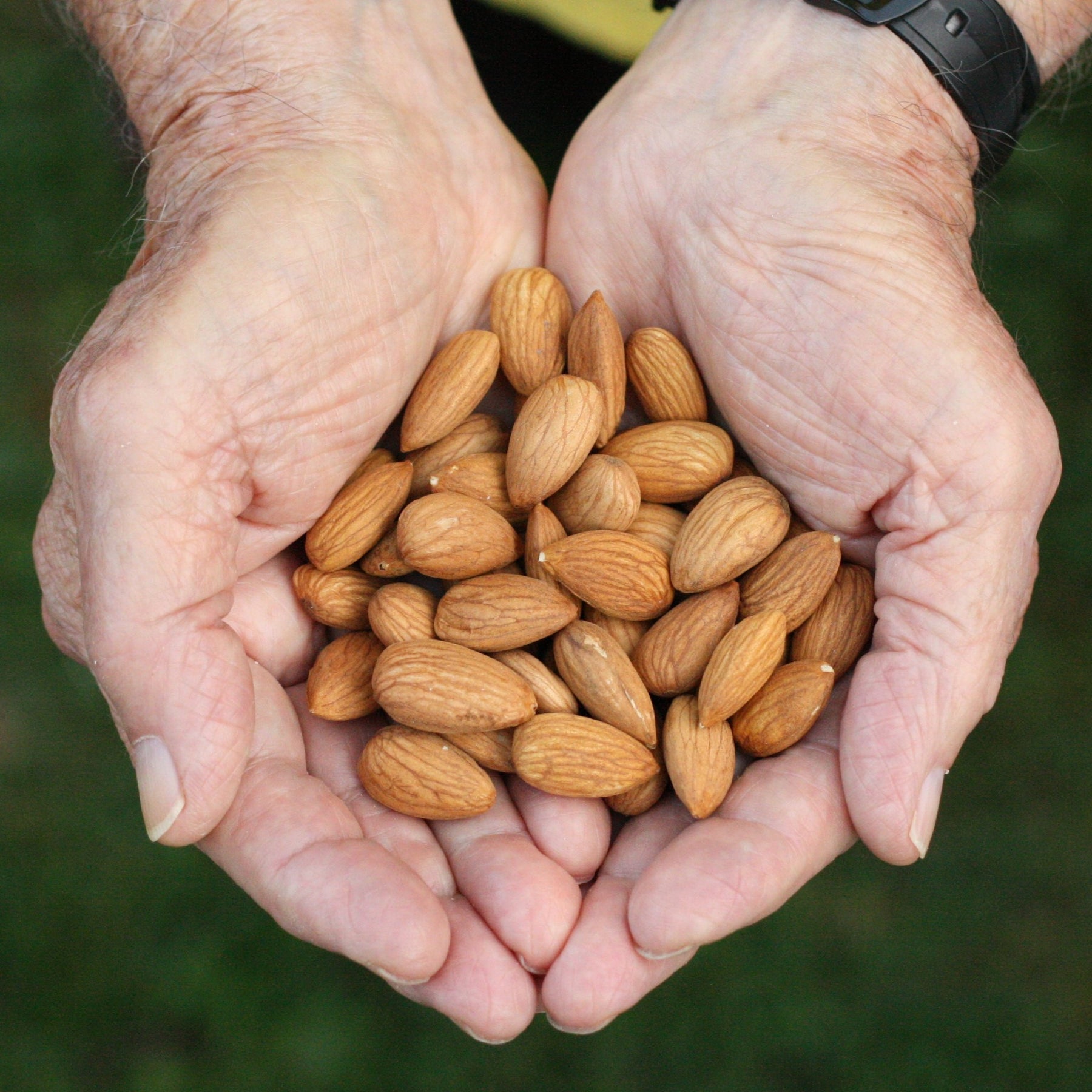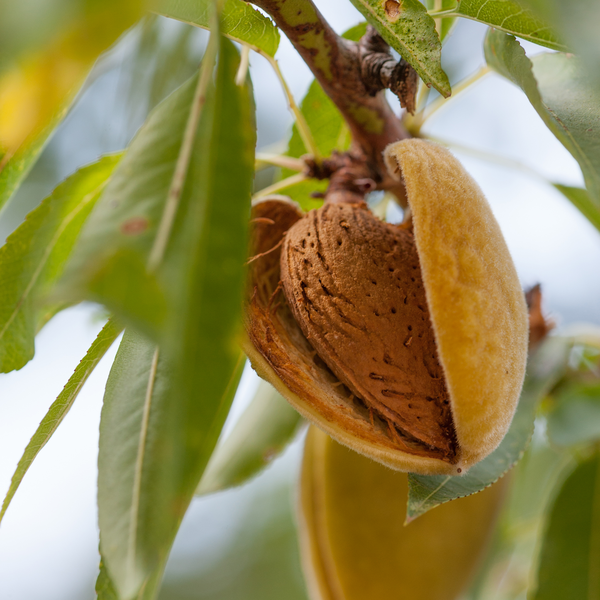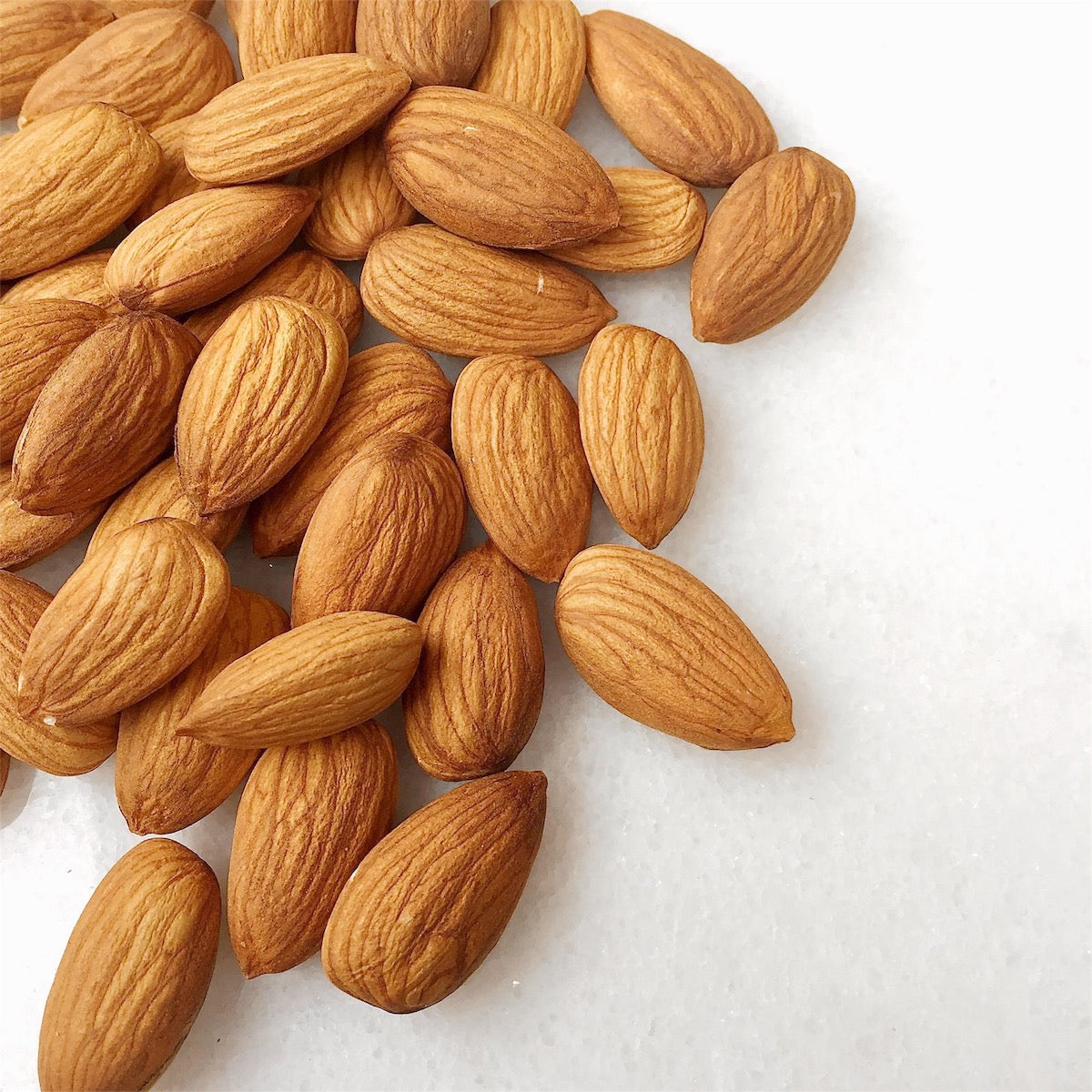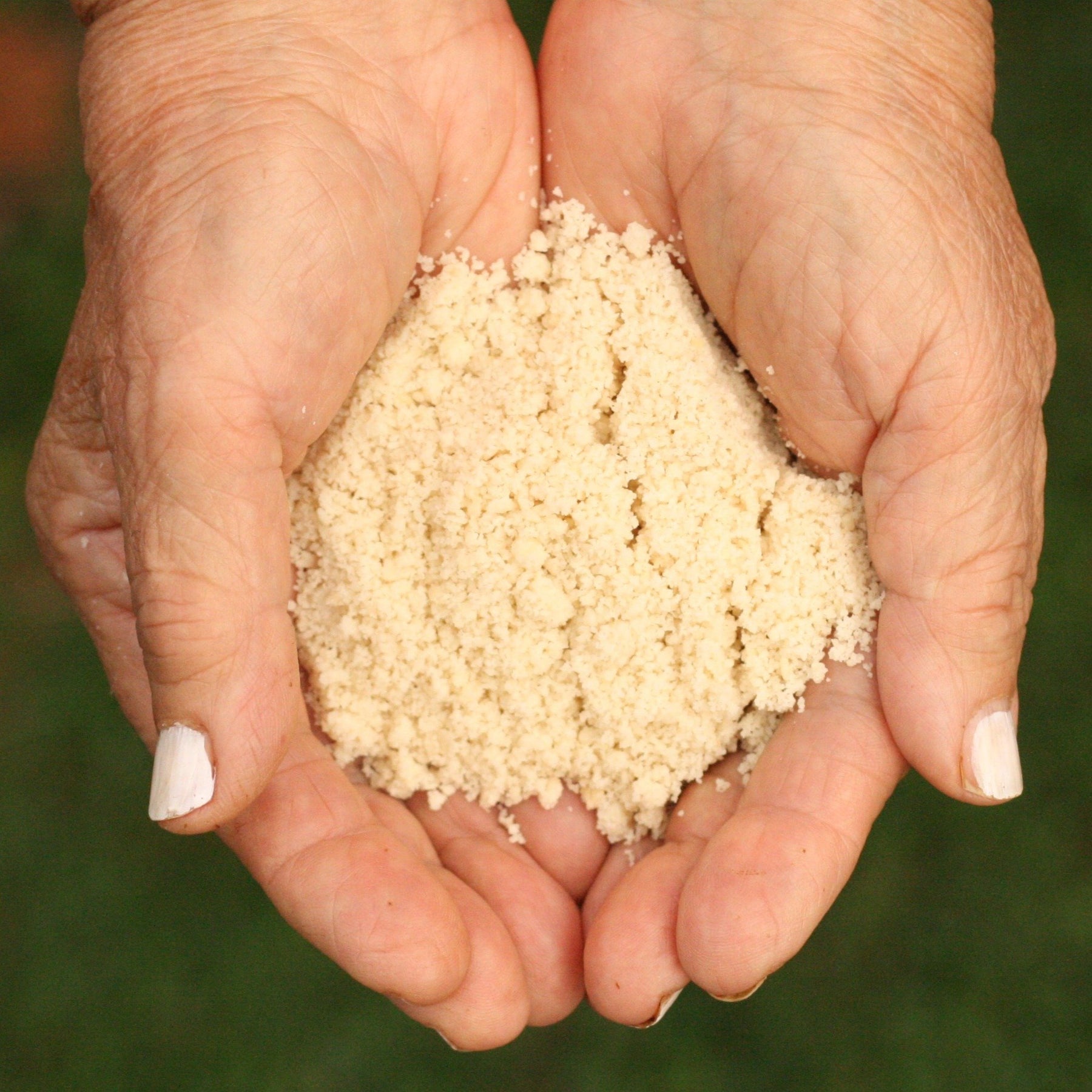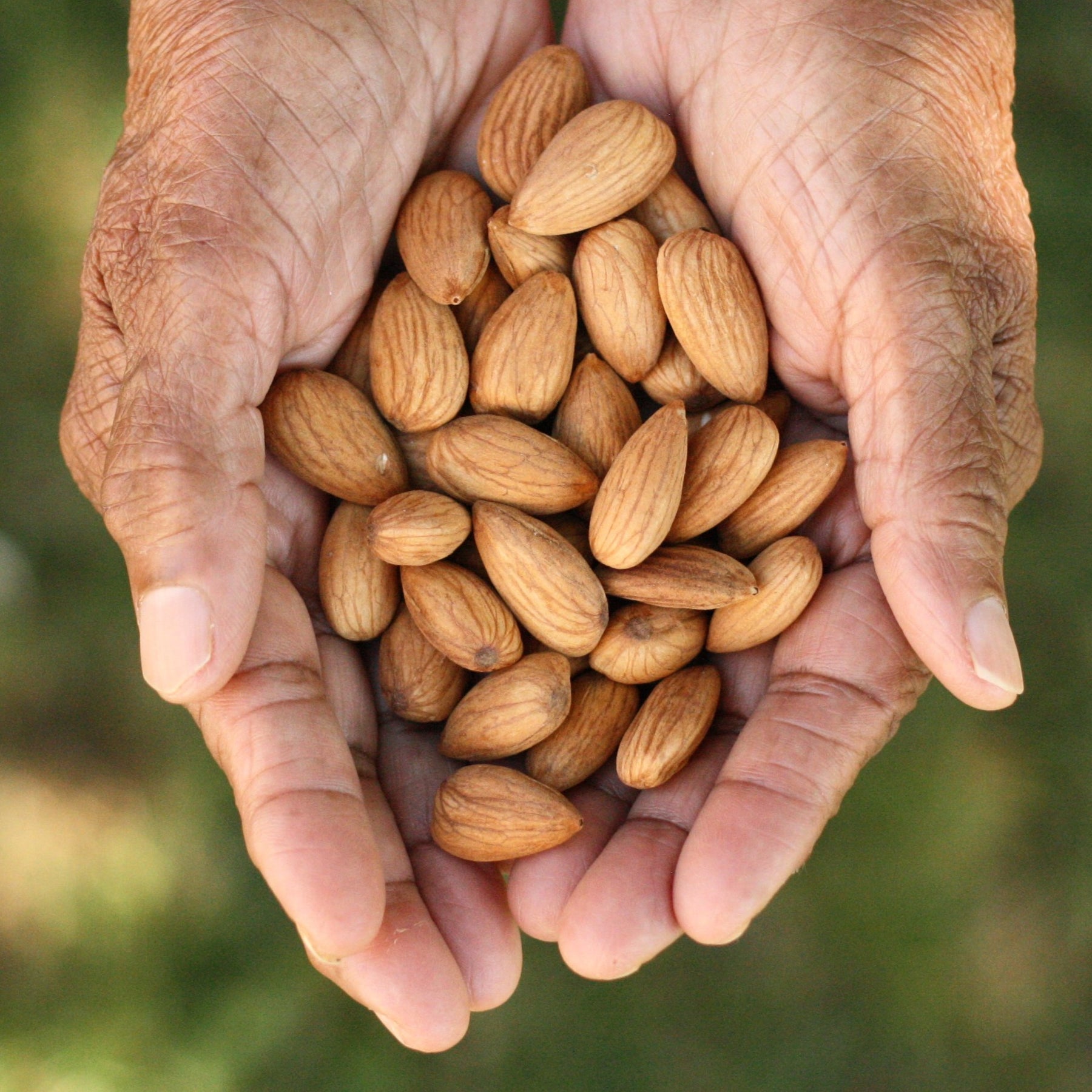No items in your cart
Continue ShoppingGrown in southern Australia on a family farm, these are the most delicious almonds we have ever tried. These almonds are a sweet varietal called "nonpareil" and unlike European varietals, these nuts have absolutely no bitterness. They are naturally crunchy and sweet, which makes them a perfect snacking nut.
These nuts are not certified organic but they are grown without any insecticides/pesticides using organic principles. We really appreciate the work, and the care, that Jarrad and his family put into the choices of how they farm the land, using permaculture, regenerative practices which make for a great home for the bees and other animals to co-exist.
These almonds are gluten, peanut, and soy free.
Buy sprouted almonds here.
Learn more about organic here.
Always refrigerate your almonds.
Click on "More Info" below to find nutritional info and links to recipes.
Almond Recipes
Green Olive and Almond Spread here
Health Nut Protein Rice Bowl here
Granola here
Almond & Pumpkin Seed Dip here
Almond Leek Soup here
Macadamia Nut, Almond Butter, Cacao Cookies here
Almond Butter - Nut Butters here
Almond Salad Dressing here
Fruit Tart here
Nutritional Information for Almonds
Almonds (nutrition per 30 g)
Calories: 174 kcal (RDI 1800–2500 kcal)
Protein: 6 g (RDI 46-70 g)
Fat: 15 g (mostly monounsaturated) (RDI 40-70 g)
Carbohydrates: 6 g (RDI 225-325 g)
Fibre: 3.5 g (RDI 21-38 g)
Sugars: 1 g (RDI no more than 30 g)
Calcium: 75 mg (RDI 1000-1200 mg)
Iron: 1 mg (RDI 8-18 mg)
Magnesium 81 mg (RDI 320-420 mg)
Phosphorus 138 mg (RDI 700 mg)
Potassium 206 mg (RDI 2600-3500 mg)
Vitamin E: 7.3 mg (RDI 15 mg)
Of note: almonds are high in protein and antioxidants like Vitamin E, which may protect cells from damage from free radicals. Almonds are a '0' on the glycemic index making them an excellent snack for those struggling with blood-sugar fluctuations and diabetes. In addition their high potassium and low sodium combination is great for people struggling with high blood pressure.
The nutritional value of almonds was recognized long before individual nutrients were discovered. Texts from thousands of years ago show almond recipes for the infirm and some texts referred to them for curing headaches, counteracting phlegm and relieving colds and dry coughs.
Almond skin contains more than 20 antioxidant flavonoids. 1 ounce of almonds contains 163 calories, 14g of fats and 4g of fibre. People often shy away from the fat content of nuts but the fat in nuts is the kind your body needs. They are essential to your brain's proper functioning, for healthy skin and a plethora of the body's functions. Having a high quality fat in your meal also discourages overeating as fat triggers satiety (low fat foods do the opposite - you often still feel hungry). These high quality monounsaturated fats are also excellent for heart health and lowering LDL (bad cholesterol).
Almonds have more of the antioxidant vitamin E than any other nut which can boost the body's defences against illness.
Being high in tryptophan, fatty acids, B vitamins and magnesium make them a great combination of nutrients in support of an anti-depressive diet.
Almonds' high fibre content is excellent for intestinal health - cleaning the colon as it passes through.
Almonds are a '0' on the glycemic index making them an excellent snack for those struggling with blood-sugar fluctuations and diabetes. In addition their high potassium and low sodium combination is great for people struggling with high blood pressure.
Almonds are a great source of calcium, phosphorus and magnesium for strong bones and teeth! 3 oz of almonds have 210 mg of calcium (compared to 3 oz of cow's milk = 113 mg of calcium).
Despite our common categorization of almonds as nuts, they are actually seeds. This is in part defined by the fact that the shell opens while on the tree whereas a "real" nut's won't.
